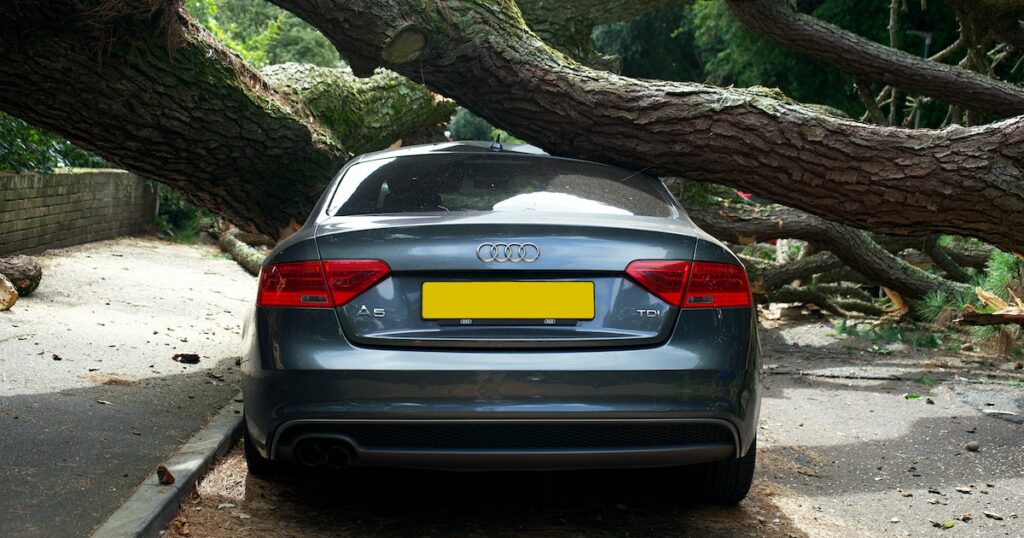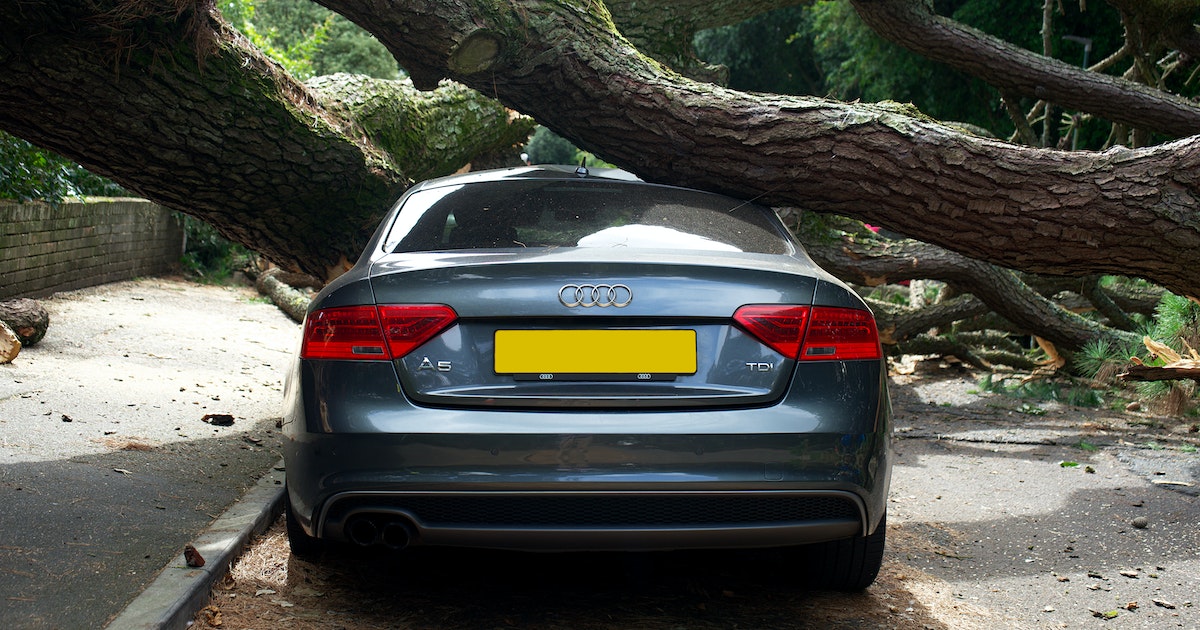Learn How Do Auto Insurance Claim Work

What is the procedure for filing an auto insurance claim? An automobile collision can happen in a couple of seconds. In the best-case situation, there may only be a fender bender. In the worst-case situation, someone could be injured or killed.

After assessing the situation and ensuring your and other parties’ safety, you must proceed to make an automobile insurance claim. That process alone can be intimidating, and you may have questions such as how insurance claims work. We’re breaking down the insurance claims process and answering frequently asked questions about vehicle insurance claims.
What exactly is an automobile insurance claim?
A car insurance claim is a form of a report you submit to your automobile insurance provider after an accident to get financial reimbursement for the accident’s damages. The process of filing an insurance claim varies depending on the provider and the type of car insurance you have.
A car insurance claim will be approved only if your policy covers it. For example, collision and comprehensive coverage will typically cover most things. However, liability insurance only covers the other driver’s property damage and physical injuries if you are judged to be at fault. As a result, it must be covered by your car insurance.
The process of filing an automobile insurance claim can also vary based on the nature of the accident. For example, the insurance claim process for car accidents will differ from the investigation of a stolen car insurance claim.
How precisely do insurance claims work?
After a car accident, theft, or damage, you must normally file a car insurance claim. Here’s an explanation of how auto insurance claims work.
Step 1: Gather information and facts regarding the incident. You will want to obtain details about what happened first as part of the insurance claims process for car accidents, vehicle damage, or personal injury. To get started, you should gather the following information:
• Everyone involved’s names and contact information
• Insurance policies for both parties (as part of a car accident claim procedure as opposed to a stolen automobile insurance claim inquiry)
• The date, time, and location of the occurrence
• Photos of any damage
Preparing this information ahead of time can make the next stage in the process go more smoothly and easily.
Step 2: Contact your automobile insurance company and register a claim.
After gathering all of the necessary information and documents, contact your auto insurance company and file a claim. You will be assigned a claims adjuster when you file a claim with your vehicle insurance company. The adjuster will review all the information to establish who is at fault. In some places, an insurance company can determine that you were somewhat at fault and thus partially responsible.
Step 3: Get your car insurance claim approved and collect your payout.
After you file a claim, it must be processed and approved before you may proceed. Remember that the circumstances of the incident will be assessed and based on what your auto insurance policy covers. The claims specialist will assist in determining who is at fault in the occurrence during the insurance claims process.
If the other driver is judged to be at fault in the collision, your auto insurance company may pursue payment from the other driver’s insurance carrier.
If you are determined to be at blame, you must pay your auto insurance deductible, which will be applied to vehicle damages.
Step 4: Repair your vehicle and review your insurance policy.
If you file a car insurance claim and it is approved, you may be paid to repair the damage to your vehicle. If you are dissatisfied with the settlement, you can begin the vehicle insurance claim dispute process.
Your automobile insurance company may provide a list of preferred auto body shops in their network from which you can choose to have your car repaired.
Make careful to have any damage repaired as soon as possible to ensure your safety on the road (for example, your automobile may still be drivable, but you want to make sure it’s safe and legal). Check with your insurance company about rental reimbursement or any Lyft/Uber ride-sharing perks if your car is being repaired.
Once everything is in order, you should evaluate your auto insurance coverage to ensure that it still meets your needs. If you were judged to be at blame for the accident, your vehicle insurance premiums are likely to climb when it comes time to renew, which can be a good time to search for car insurance.
How do automobile insurance deductibles work?
A car insurance deductible is the amount of money you must pay out of pocket before your insurance company will pay anything. Assume you had a $1,000 deductible and your automobile was damaged for $3,000; your car insurance carrier would cover $2,000 of the repairs. It’s critical to understand your deductible and the sort of coverage you have, like collision or comprehensive coverage. Car insurance claims frequently asked questions. You may have many questions about how vehicle insurance claims work, so here are some answers to some often asked questions.
Is it necessary for me to make an auto insurance claim?
Yes, in most circumstances, filing a car insurance claim is advisable. If there has been an accident, you must report it and file a claim. Some people believe settling with the other party is a good decision if there are few damages and no injuries (Hint: it isn’t always).
You may find yourself in hot water later if they discover the damage is more significant than they first anticipated, and your car insurance company may refuse to pay you since you did not disclose it.
You don’t need to file a claim if the damage to your automobile is modest, such as scraping the side door, and no one else is involved. The repair cost may be less than your car insurance deductible, requiring you to pay for any necessary repairs out of pocket. If you have any questions or concerns, you should contact your insurance provider so that they can assist you during this process.
When should I make a car insurance claim?
If an accident or injury involves another person, you must file a claim as soon as possible. Many states have thresholds that must be reported to the DMV.
This is often handled during the claims procedure.
However, you must still file the report if the damage exceeds the threshold and no claim was filed. California, for example, has a $1k threshold that necessitates using an SR-1 form. Failure to submit this could result in a suspended driver’s license or registration.
If your car was taken, register a claim as soon as possible so your car insurance company can investigate your stolen car insurance claim. Should I file a claim with my insurance or the insurance of the other person?
If you are at fault in an automobile accident, you should make a claim with your own insurance company. It’s a brilliant idea to file a claim with your own insurance provider if you’re not at fault and have collision coverage. This is a viable option if the other party is uncooperative or has insurance issues.
Finally, if you are not at fault and want to avoid paying your car deductible, you can submit a claim with the insurance company of the other person. However, it is recommended that you file with your insurance carrier because your insurance will handle the procedure for you through subrogation. Regardless of your path, always tell your insurance company of any loss, incident, or accident.
Should I use the network of repair shops provided by my insurance company?
Following a car accident, your insurance carrier may offer a network of repair shops to assist you in repairing the damaged vehicle. These repair shops have been approved and assist in keeping expenses low, but you are not forced to use them. You are free to work with another repair company if you like.
Some people may be eligible for a payout if the cost of repairs exceeds the vehicle’s worth. Therefore, you may not need to attend a repair shop.
How much time do I have before I need to file a car insurance claim?
After an accident, you should file a claim with your car insurance company as quickly as possible. Check your insurance policy for information on claim filing requirements.
Why is the auto insurance claim process necessary?
Whether you’ve been in an accident, are dealing with automobile theft, or have another problem, the car insurance claim process is critical for various reasons. Car insurance might provide financial assistance or peace of mind during a challenging moment.
The vehicle insurance claims procedure should ideally be simple, but it frequently results in a lot of back and forth. That is why Metromile set out to develop an auto insurance claim method that is unlike any other.
Our goal is to make auto insurance as simple as possible. Because the last thing you need when you need to file a claim is to add additional worry to your plate.
In conclusion
Car insurance provides excellent financial security for drivers. Nobody likes to file a claim or be involved in an accident, but your auto insurance is designed to protect you and ensure you can move on with your life.


